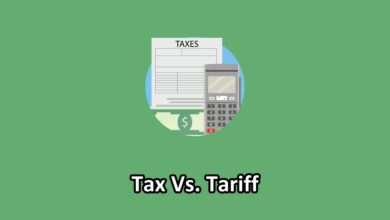Difference Between Cash Market and Future Market [With Table]
In the world of finance, two significant marketplaces play pivotal roles – the Cash Market and the Future Market. These markets are integral components of the global financial system, each serving distinct purposes and presenting unique opportunities. In this article, we’ll delve into both markets, highlighting their defining features, and emphasizing the importance of understanding the differences between them.
Cash Market Vs. Future Market (A Comparison)
| Cash Market | Future Market |
|---|---|
| The Cash Market is a financial market where financial instruments, commodities, or assets are bought and sold for immediate delivery and settlement. | The Future Market is a financial market where participants use standardized contracts (futures contracts) to buy or sell a specified quantity of an underlying asset at a set future date and price. |
| The Cash Market is known for its high liquidity. This means that assets can be bought or sold quickly and at a price close to the market rate. | In the Future Market, liquidity can vary significantly. Some futures contracts, especially those tied to highly traded commodities or indices, are highly liquid, allowing for quick and efficient trading. |
| In the cash market, when you buy an asset, you become the legal owner of that asset. You have full control over it, and you can choose to hold, use, or sell it as you wish. | In the Future Market, you don't own the underlying asset itself. Instead, you own a futures contract, which is a legally binding agreement to buy or sell the asset at a specified future date and price. |
| In the cash market, the risk is relatively lower as it involves the actual buying and selling of assets, commodities, or securities at the current market price. | The futures market involves higher risks due to the use of leverage. Traders can gain or lose substantial amounts of money quickly, as they are speculating on the future price of an asset |
| Leverage is limited in the cash market because you typically need to pay the full price of the asset upfront. | Futures markets allow for significant leverage, as traders are only required to put down a fraction of the contract's value as margin. |
| Regulation in the cash market varies depending on the type of asset being traded and the jurisdiction. | The futures market is highly regulated by government agencies, such as the U.S. |
| The primary purpose of the cash market is to facilitate the buying and selling of actual assets, commodities, or securities for immediate delivery and ownership. | The primary purpose of the futures market is to provide a platform for hedging and speculation. |
| The Cash Market is also known as the "Spot Market." | The Future Market is also known as the "Futures Exchange" or "Derivatives Market." |
| Cash Market examples include buying and selling stocks on a stock exchange, purchasing physical commodities like gold or oil, or real estate transactions. | Future Market examples include trading futures contracts on stock indices like the S&P 500, agricultural commodities like wheat, or financial instruments like interest rate futures. |
- Revenue Marketing vs. Demand Generation
- Balance Sheet vs. Cash Flow Statement
- Cash Accounting vs. Accrual Accounting
What is the Cash Market?
The Cash Market, often referred to as the spot market, is the cornerstone of the financial world. It represents the simplest form of trading, where financial assets are bought and sold for immediate delivery and payment. In essence, when you engage in a transaction in the cash market, you are exchanging real, tangible assets, such as stocks, bonds, or commodities, for cash.
Cash Market transactions are straightforward – if you want to buy a stock, you pay the current market price, and you immediately become the owner of that stock. This market’s hallmark is the prompt exchange of assets for cash, making it the go-to choice for many investors and traders.
What is the Future Market?
On the other hand, the Future Market deals with financial contracts, known as futures contracts, which obligate the parties involved to buy or sell a specified quantity of an underlying asset at a predetermined future date and price. Futures contracts can include commodities like oil or agricultural products, financial instruments like stock indices, and even interest rates.
Futures contracts add a layer of complexity to trading. These are essentially agreements to make transactions in the future, and they don’t involve immediate ownership or delivery of the underlying asset. Instead, they derive their value from the performance of the underlying asset.
Examples
Example of Cash Market Transactions
Imagine you walk into a stock brokerage and buy 100 shares of your favorite company’s stock. In the cash market, this is a straightforward transaction. You pay the current market price, and you own those shares outright.
Example of Future Market Transactions
Suppose you’re a farmer and want to lock in the price for your wheat harvest in six months to protect yourself from price fluctuations. You would enter into a wheat futures contract, specifying the price and delivery date. You won’t have to deliver the wheat immediately, but you are obligated to do so at the specified future date.
Key Differences Between Cash and Future Markets
When comparing the Cash Market vs the Future Market, several key factors set them apart. Let’s delve into each of these factors to gain a comprehensive understanding of the differences:
Ownership
Cash Market
Ownership in the Cash Market is straightforward. When you buy an asset, you become the legal owner of that asset. You have full control over it, and you can choose to hold, use, or sell it as you wish.
Future Market
In the Future Market, you don’t own the underlying asset itself. Instead, you own a futures contract, which is a legally binding agreement to buy or sell the asset at a specified future date and price. The contract does not confer ownership of the asset but rather represents a commitment to trade it in the future.
Risk and Leverage
Cash Market
In the cash market, the risk is relatively lower as it involves the actual buying and selling of assets, commodities, or securities at the current market price. Leverage is limited in the cash market because you typically need to pay the full price of the asset upfront.
Future Market
The futures market involves higher risks due to the use of leverage. Traders can gain or lose substantial amounts of money quickly, as they are speculating on the future price of an asset.
Futures markets allow for significant leverage, as traders are only required to put down a fraction of the contract’s value as margin.
Regulation
Cash Market
Regulation in the cash market varies depending on the type of asset being traded and the jurisdiction. It is generally subject to securities and exchange regulations.
Future Market
The futures market is highly regulated by government agencies, such as the U.S. Commodity Futures Trading Commission (CFTC) in the United States. Regulations are in place to ensure the integrity of the market and protect market participants.
Purpose
Cash Market
The primary purpose of the cash market is to facilitate the buying and selling of actual assets, commodities, or securities for immediate delivery and ownership.
Future Market
The primary purpose of the futures market is to provide a platform for hedging and speculation. It allows market participants to manage price risk by entering into contracts to buy or sell assets at a future date and price.
Alternate Name
The Cash Market is also known as the “Spot Market.” In this market, transactions are settled “on the spot,” meaning that the exchange of the asset and payment occurs immediately.
The Future Market is also known as the “Futures Exchange” or “Derivatives Market.” It is where futures contracts, which are standardized agreements to buy or sell assets in the future, are traded.
Examples
Cash Market: Buying and selling stocks on a stock exchange, purchasing physical commodities like gold or oil, or real estate transactions.
Future Market: Trading futures contracts on stock indices like the S&P 500, agricultural commodities like wheat, or financial instruments like interest rate futures.
Conclusion
In conclusion, the Cash Market and Future Market are fundamental components of the financial world. Understanding their differences is crucial for investors and traders looking to navigate these markets effectively. Whether you prefer the simplicity and immediacy of the cash market or the complexities and opportunities of the future market, knowing the distinctions will help you make informed financial decisions. The choice between these markets ultimately depends on your financial goals, risk tolerance, and trading preferences.




2 Comments